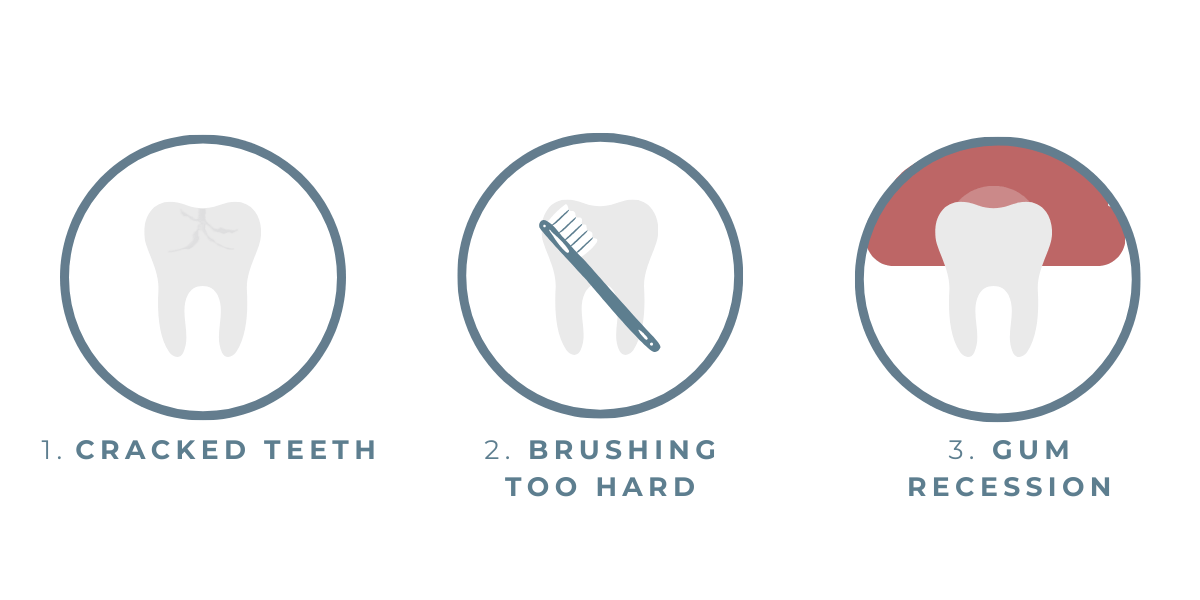What Can You Do About Sensitive Teeth?
Our top dentists help patients in and around Ripon and Boroughbridge to overcome dental problems ranging from dental emergencies to keeping on top of their oral hygiene, to combating sensitive teeth. It’s all to help create healthy, happy smiles and restore your confidence once again.
Today, our team is focusing on the issue of sensitive teeth, a common concern among our Ripon patients. Find out what the signs and symptoms are, how to treat sensitivity, and ways to avoid developing sensitive teeth altogether.
So, what are the signs of sensitive teeth?
There are quite a few tell-tale signs that you’re experiencing tooth sensitivity. These include:
- Pain and discomfort when carrying out your dental care routine, for example brushing and flossing.
- Tingling, pain and discomfort when eating certain types of food or having certain drinks. Sweet and acidic are the most common.
- Sensitivity to temperature variations in both food and drink, and whether it’s hot or cold.
- Sensitivity to the outside temperature (for example, cold air outside).
What does tooth sensitivity feel like?
As you might have guessed, it’s typically tingling and discomfort. Some people experience sharp pain, while others only feel a twinge or tickling sensation. It depends on the person, and how severe the cause is.
Why am I experiencing tooth sensitivity?
Our teeth are protected by a layer of enamel. Underneath this is a substance called dentin. And inside the tooth, you’ll find a bundle of nerves called the pulp. The more enamel is worn away, the more these underlying layers are exposed, leading to sensitivity.
What’s causing my tooth sensitivity?
In many tooth sensitivity cases, poor oral health is to blame. Bacteria can build up on the teeth and feed on sugary or acidic foods and drinks. Acid can also break down the surface of the teeth. Brushing and flossing can help to prevent this.
Sometimes, people grind their teeth (a medical condition called bruxism). This can wear away enamel and the precious outer layers.
Finally, brushing and flossing too hard can also affect the enamel.

How can I treat my tooth sensitivity?
Sensitive toothpaste can help to reduce the unpleasant sensations you’re feeling. But if decay is a cause, an infection can set in over time. Your dentist near Ripon will need to treat the decay, such as with a filling. If an infection has developed, a root canal will need to be performed, followed by a filling. In extreme cases, the tooth may need extracting.
How do I prevent my teeth from becoming sensitive?
Remember to brush and floss (gently) twice a day; regularly visit your dentist; and tackle concerns like bruxism. You might also need to adjust your diet and lifestyle, which your dentist in Ripon can discuss with you.
How do I book an appointment for my sensitive teeth?
It’s simple. Just get in touch with our top dentists today.

